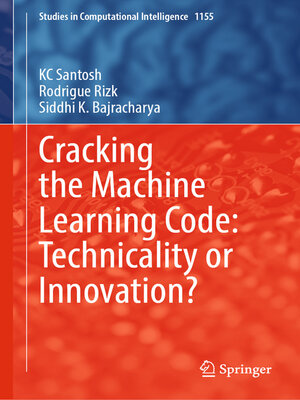Cracking the Machine Learning Code
ebook ∣ Technicality or Innovation? · Studies in Computational Intelligence
By KC Santosh

Sign up to save your library
With an OverDrive account, you can save your favorite libraries for at-a-glance information about availability. Find out more about OverDrive accounts.
Find this title in Libby, the library reading app by OverDrive.



Search for a digital library with this title
Title found at these libraries:
| Loading... |
Employing off-the-shelf machine learning models is not an innovation. The journey through technicalities and innovation in the machine learning field is ongoing, and we hope this book serves as a compass, guiding the readers through the evolving landscape of artificial intelligence. It typically includes model selection, parameter tuning and optimization, use of pre-trained models and transfer learning, right use of limited data, model interpretability and explainability, feature engineering and autoML robustness and security, and computational cost – efficiency and scalability. Innovation in building machine learning models involves a continuous cycle of exploration, experimentation, and improvement, with a focus on pushing the boundaries of what is achievable while considering ethical implications and real-world applicability. The book is aimed at providing a clear guidance that one should not be limited to building pre-trained models to solve problems using the off-the-self basic building blocks. With primarily three different data types: numerical, textual, and image data, we offer practical applications such as predictive analysis for finance and housing, text mining from media/news, and abnormality screening for medical imaging informatics. To facilitate comprehension and reproducibility, authors offer GitHub source code encompassing fundamental components and advanced machine learning tools.






